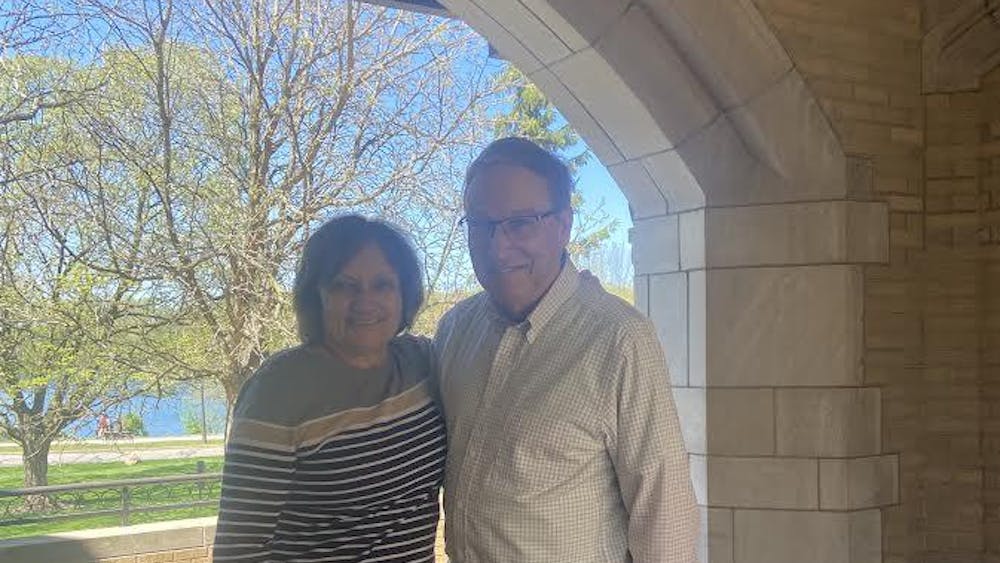Saint Mary’s College professor Megan Zwart teaches Philosophy 255: Medical Ethics, a course dedicated to a better understanding of the moral issues that surround modern medicine, including euthanasia, abortion and patient-therapist relationships among others. The class was originally taught in traditional format, with students reading contemporary case studies and philosophical arguments and then discussing the ethical problems in class. More recently, however, it has become a personal learning experience that applies community engagement to in-class learning.
With some of her students entering medical professional fields and all being consumers of healthcare, Zwart said she decided to integrate an experiential learning component that encourages community involvement with five field trips and a requirement of eight hours of service learning outside of class time.
“I wanted to give students an opportunity to engage in experiential learning out in the community so they could see some of our ethical issues unfold in clinical settings,” Zwart said in an email. “I also wanted them to relate to healthcare professionals who make significant ethical decisions in the course of their everyday lives.”
The five field trips take Saint Mary’s students to a care center for medically fragile children, a pediatric intensive care unit, a hospice facility and two nursing homes, Zwart said. While most students complete their eight hours of volunteer work at Healthwin, a long-term care and rehabilitation facility, others have worked at Hospice House, Memorial Hospital, A Rosie Place and other healthcare institutions.
Though it is not required, most students spend their time with young children or the elderly, dedicating their time to the two sides of the age spectrum that arguably require the most patience, responsibility and compassion, Zwart said.
“At the beginning of life and late in life, individuals are more likely to experience dependency and require medical care. Ethical questions about patient welfare, respecting patient autonomy and making complex decisions about medical interventions probably arise more frequently in these populations,” Zwart said. “Older adults in particular are a fast-growing segment of our population, and so there are special considerations about how to provide them with dignified care and the opportunities to make decisions for themselves, especially in long-term care settings.”
Zwart said she hopes students, pre-healthcare professionals or otherwise, leave her course with the ethical tools necessary for facing the complex moral questions that arise in their own lives. According to Zwart, many students who have completed Philosophy 255 felt more prepared for medical school interviews, having already tackled the trickiest of ethical questions in class and while volunteering.
“I’ve also had former students tell me that in dealing with a sick parent or making a difficult decision about care, they thought back to our experiences, readings and discussions,” Zwart said.
This course has also allowed SMC students to create lasting relationships in the local community, many of which continue even after the culmination of the class.
“I think any opportunity to broaden your perspective by engaging with others who have different experiences than you do is an opportunity that will pay dividends later, in both your career and your life,” Zwart said.
At Saint Mary’s College, students are given the skills needed to respond to the “complex needs and challenges of the contemporary world.” Technological advances in the field of medicine have transformed the face of healthcare, and they have subsequently introduced complicated moral questions. Zwart hopes that her course will help College students answer these questions with responsibility and compassion.
“By equipping students with critical reasoning skills, helping them develop tools to investigate their own beliefs and engage with the views of others and giving them the opportunity to engage with healthcare providers and patients in our community, I hope the class helps prepare women to be engaged contributors to the world beyond Saint Mary’s,” Zwart said.












